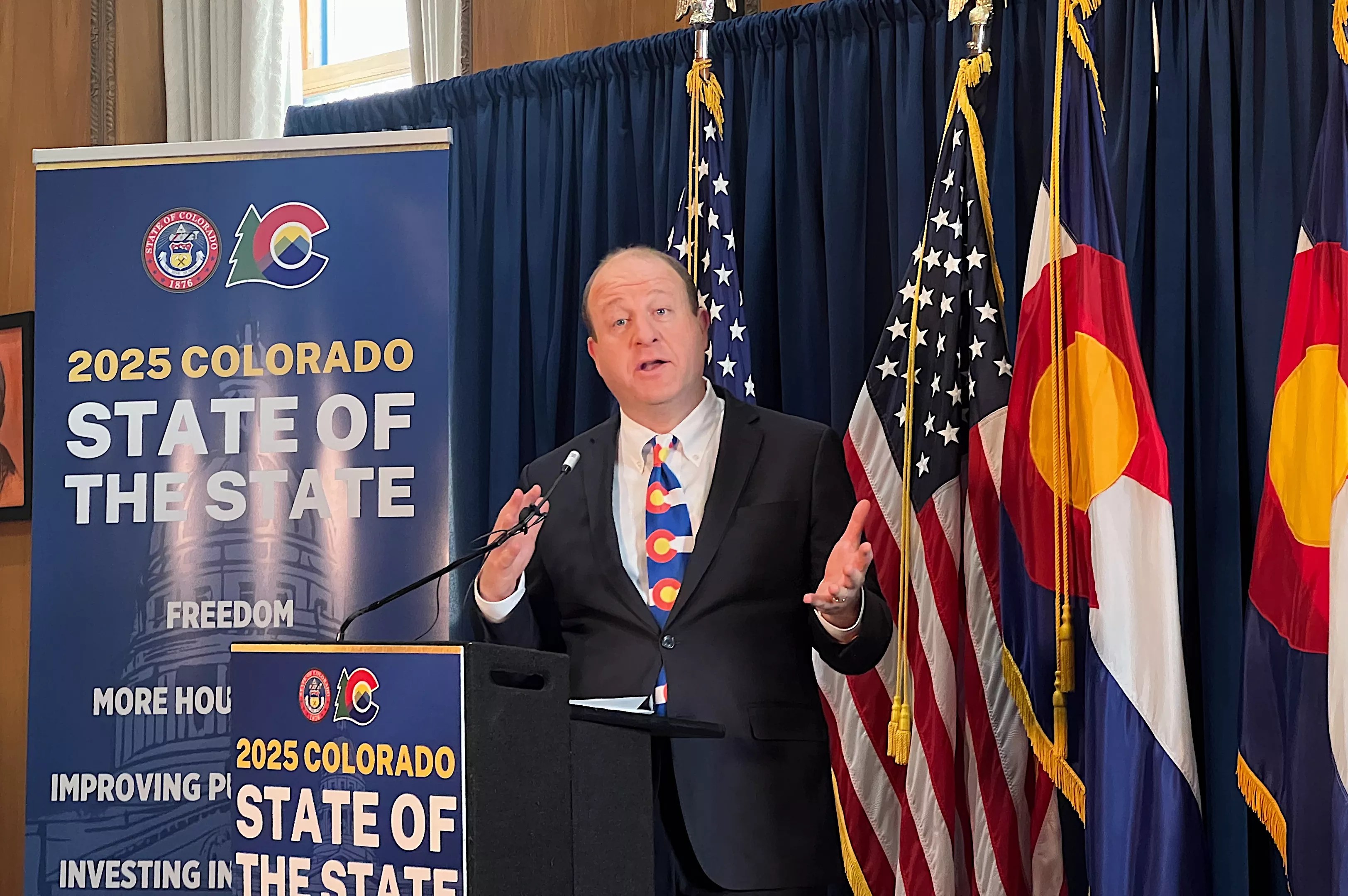
Towfiqu Barbhuiya/pexels

Audio By Carbonatix
Update: Governor Jared Polis vetoed Senate Bill 25-086 on April 24, providing the following statement: “Despite good intentions, this bill fails to guarantee the safety of minors or adults, erodes privacy, freedom, and innovation, hurts vulnerable people, and potentially subjects all Coloradans to stifling and unwarranted scrutiny of our constitutionally protected speech.”
Bill sponsors are attempting to override his decision with a legislative supermajority. A vote in the state Senate is scheduled for Friday, April 25.
A newly passed Colorado bill aims to regulate how social media companies respond to illegal conduct on their platforms. The effort is years in the making, culminating in broad bipartisan approval from state legislators. By the time it was sent to Governor Jared Polis on April 14, three-fourths of lawmakers stood behind the bill.
But the policy has paused on the governor’s desk. Polis has until Thursday, April 24 – ten days after he received the bill – to veto or let it become law per a constitutional deadline. As of Wednesday morning, his decision is still unclear.
The governor’s office has been a vocal opponent of the bill from the beginning, testifying against the measure during its first committee hearing in February. When the bill passed in April, Polis’s office released a statement saying the governor “has serious concerns about the impact.” However, while Polis has the power to veto the policy, a vote from two-thirds of legislators would override him.
Legislators have never overridden a veto from Polis in his six years in office (the Colorado Legislature’s last successful veto override vote was in 2011). Regardless, sponsors of Senate Bill 25-086 say they’re ready to take up the fight.
“I have not gotten any updates directly from the governor’s office about a veto, but we do still believe he will veto,” says Senator Lindsey Daugherty, a prime sponsor behind the bill. “We also believe that our votes will hold in both chambers.”
“We are trying to protect children on social media sites who are dying from criminals selling them drugs, firearms, and sexually exploiting them,” she adds. “I respect the governor, but I hope that he really takes into consideration the families and children that will continue to suffer without this legislation. The legislature, with bipartisan support, has made it very clear through their votes that this is important to them and their constituents, as well.”
If made law, SB 25-086 will require large social media companies to permanently remove accounts found to be engaging in the sale of drugs or guns, or the sexual trafficking or exploitation of minors. Companies would have ten days to review legitimate reports against accounts accused of those violations, then 24 hours to remove users if the reports are confirmed.
The bill also seeks to speed up the timeline for law enforcement investigations into those crimes. It would require social media companies to comply with search warrants within 72 hours, maintain a hotline to communicate with state law enforcement agencies, and release annual reports on illegal activities and how minors interact with illicit content.
Supporters say the policy is meant to protect young social media users by cracking down on widespread illegal activity on the platforms.
One of the advocates behind the policy, Chelsea Congdon, lost her nineteen-year-old son to an overdose from drugs he purchased on social media. She says her son, Miles Brundige, dislocated his shoulder during his sophomore year at the University of Colorado Boulder in 2020. He bought Percocet on Snapchat to manage the pain, but didn’t know it was laced with “enough fentanyl to kill three people.”
“My son might still be alive if this bill had been law a few years ago,” Congdon says in a statement. “If this bill had been law, the dealer could have been kicked off Snapchat before he sold the fentanyl that killed my child. …Governor Polis has the power to spare other Colorado families from the unthinkable tragedy my family had to face.”
Critics raise concerns that the bill could violate freedom of speech protections and assign private companies with the task of determining when users break the law. Polis, who is a millionaire tech entrepreneur, has also expressed worries about the impact the policy would have on “innovation” and data reporting for social media companies.
“The governor wants to protect internet freedom while making Coloradans safer, but has serious concerns about the impact of this bill on freedom, innovation, and privacy,” a Polis spokesperson says in a statement. “He is not comfortable with the government forcing private social media companies to act as law enforcement.”

Governor Jared Polis has until Thursday to veto, sign or let Senate Bill 25-086 become law.
Hannah Metzger
The bill received bipartisan support and sponsorship, passing the Senate in a 29-6 vote and the House in a 46-18 vote with one member excused. That support meets the two-thirds supermajority threshold needed from each chamber to override a veto from the governor. However, losing just two “yes” votes in the House would tip the scales.
“We are working to sustain the override,” says Senator Lisa Frizell, another prime sponsor of the bill. “I am very hopeful.”
Advocates on both sides of the issue have been pushing the governor to act. Proponents held a press conference outside of the State Capitol Building on April 14 urging Polis to sign the bill, while opponents held a virtual conference on April 22 asking him to veto it.
Opponents of the measure include representatives of the tech industry coalition Chamber of Progress and the liberal political organizations ProgressNow and the ACLU of Colorado.
“The government requiring the removal of any person from any speech platform should raise flags,” says Anaya Robinson with the ACLU of Colorado. “Just because an individual may engage in an instance of unprotected speech does not negate their right to exercise their First Amendment on a speech platform altogether. …Cyber space is one of the most important places to exchange views.”
Other groups registered against the bill are TikTok, TechNet, Rocky Mountain Gun Owners, New Era Colorado, and the Computer & Communications Industry Association.
Proponents of the bill include the Colorado Association of Chiefs of Police, Colorado Children’s Campaign, Children’s Hospital Colorado, Colorado Alliance of Boys and Girls Clubs, and Colorado District Attorneys’ Council. District Attorneys Michael Dougherty and Brian Mason spoke in support of the policy during last week’s press conference, as well.
Congdon says that Snapchat refused to respond to the law enforcement investigation into her son’s fatal drug deal. “No one was ever held accountable for his death,” she adds.
Mason told lawmakers this is a common occurrence.
“We hear nothing for days and days and days at a time. And in order to solve a crime like a homicide, time is of the essence,” Mason said during the bill’s first committee hearing on February 19. “Kids are killing kids and they’re using social media to do it. …This is a bill of life and death.”
A similar measure to regulate social media content failed last year due to concerns that it would penalize Coloradans for advertising products or services that are legal in the state but prohibited elsewhere in the country, such as marijuana or abortion. This year’s bill includes exemptions for legal hemp, THC and natural medicine products, and specifies that the search warrant provisions don’t apply to investigations into legal reproductive health care activities.
Polis has already vetoed one bill this legislative session in Senate Bill 25-077, which would have changed the state’s open records law. Legislators are going to try to override that veto, too, with a vote scheduled in the Senate on April 25.
A veto threat from the governor killed a different tech regulation bill last week: Senate Bill 25-201, which sought to require age verification to access pornography online. Sponsors tabled that bill on April 14 because it would have been too late in the session to hold an override vote if Polis vetoed it (the session ends on May 7).
There is no option for Polis to wait until the end of session to act on SB 25-086. As Thursday’s deadline looms, the clock is ticking.